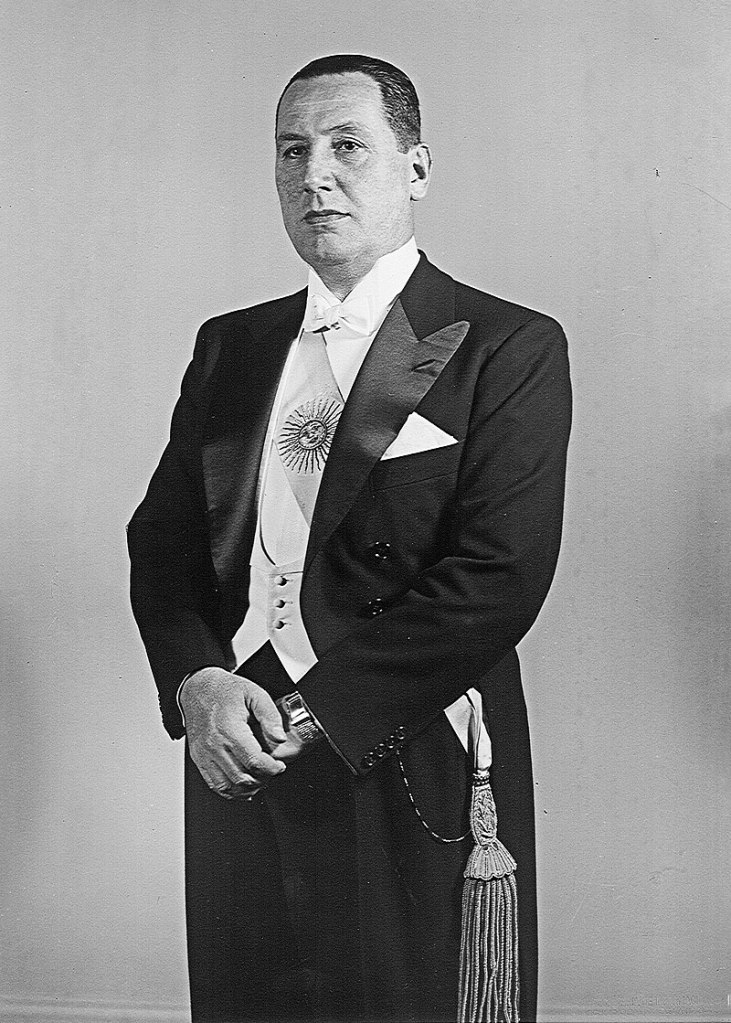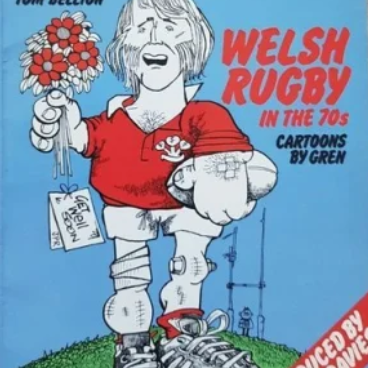
Much debate surrounded Scotland and Wales rugby teams refusal to play Ireland in Dublin following the events of Bloody Sunday in 1972. England ignored the IRA threat and played against Ireland in Dubin a year later making themselves heroes in the process. The England Rugby team were delivered to Lansdowne Road under armed protection and John Pullin the England captain led out his team to a thunderous and sustained ovation.
However, the England Rugby team, captained by John Pullin of Bristol and managed by Mr “Sandy” Sanders, faced another dilema in 1973 as they prepared to tour Argentina. The tour itinerary, due to begin in Buenos Aires on August 29, involved six matches and two representative matches against the Pumas. It would have been the first time that the two nations met.
However, there was political turmoil in Argentina. The presidential elections of 1973 were won by Perón’s surrogate candidate, Hector Cámpora, a left-wing Peronist, who took office on 25 May 1973 ending Argentinian rule by military junta. The jubilation that followed May’s return to democracy (following over six and a half years of military rule) was soon clouded by political friction and unforeseen events. President Campora resigned after 6 weeks in charge and told Congress that he was fulfilling the slogan under which his party went to the polls in March—” Campora to Government, Peron to Power.” In June, Perón returned from Spain ending 17 year exile. Campora called for new elections, but this time with Perón as the Justicialist Party nominee and was assured of a big victory in September elections

Argentina was witness to the Ezeiza massacre in June that year as Peronist masses, including many young people, had gathered to acclaim Juan Perón’s return from an 18-year exile in Spain. Camouflaged snipers from the right-wing of Peronism opened fire on the crowd killing 13. In July, an Argetninia airliner was hijacked by left-wing guerillas, identified as Triotskyist People’s Republic Army, and taken to Havana, Cuba.
On top of that and of more serious concern to England, were a spate of kidnappings by urban guerrillas of so many visiting notabilities, businessmen and diplomats. There have been more than 60 abductions by urban guerrillas in Argentina that year. Among those missing was Mr Charles Lockwood, a British businessman seized outside his home in Buenos Aires. He was brother of EMI Chairman, Sir Joseph Lockwood.
Letters written in Spanish were sent to the England containing kidnap and ransom threats to players in the England party. Steele-Bodger said it was apparent that they were from a group of guerillas currently operating in Argentina. Because of this, a cable was sent to the Argentine Rugby Union saying England, with much regret, have cancelled the tour and will not be visiting Argenitna that summer.
Mr M. R. Steele-Bodger, President of the Rugby Union, said:
We have received threats to the safety of our players involving kidnapping and have decided that the risk is unacceptable. We have been watching the situation closely for some time and we felt that it would be unfair to ask the players in such a large touring party to have to live under this strain for such a long time.
We have had to do it because of threats to the safety of our players. On a tour of this duration such a risk was unacceptable. It’s a tremendously sad decision but it is unrealistic and unfair to expect our players and families to live under this threat, whatever the security precautions.
One of the England tourists commented:
‘I was aware of the troubles in Argentina, but it never occurred to me to think of them in terms of danger to the England team.’
Due to the cancellation, England decided to visit New Zealand on August 23 for a short tour which includes an international against the All Blacks at Auckland and three provinces in a hectic 15 days. The trip gave New Zealand a substitute for the tour of their country by South Africa, cancelled by pressure of anti-apartheid opinion.
The Argentinians were not happy. English officials were described “pirates” in newspapers.
The mass circulation newspaper Cronica said:
‘The tour was arranged during the previous Government rule and kidnappings were quite frequent then. The real reason for the calling off-as seems logical sincc we are talking to pirates- is money. They are simply not coming here because New Zealand pays more’
Aftermath
England did indeed tour New Zealand in 1973 and recorded one of their most famous victories. They beat the All Blacks at Eden Park, Auckland 16-10, their first win against New Zealand since 1936.
Rumania sent a rugby team to tour Argentina in 1973 replacing England. Romania were considered one of the best teams in Europe at the time. Romania lost both tests: 15-9 and 24-3.
Charles Lockwood, the Englishman kidnapped, was held for 54 days and freed at the end of July after a ransom of £800,000 was paid.
Peron served as Predient of Argentina from October 1973 until his death in July 1974.
Argentina toured England, Wales and Italy in 1978. They drew 13-13 against England Argentina awarded full international caps for the fixture but England did not.
What followed in Argentina was ‘the Dirty War’ and a period of state terrorism
from 1974 to 1983 as a part of Operation Condor, during which military and security forces and death squads in the form of the Argentine Anticommunist Alliance hunted down any political dissidents and anyone believed to be associated with socialism, left-wing Peronism, or the Montoneros movement.
It is estimated that between 9,000 and 30,000 people were killed or disappeared in Argentina, many of whom were impossible to formally document due to the nature of state terrorism.
